Content Gap Analysis Shows You:
- Specific questions where competitors get mentioned but you don't
- Content formats that perform best on each AI platform
- Topics where your expertise isn't represented in AI responses
- High-performing prompts in your industry that generate consistent competitor mentions
Find the Content Sources That AI Platforms Actually Trust and Cite
Our citation intelligence (analysis of which sources each AI platform references when discussing your industry) identifies content types, websites, and formats that get featured consistently.
For instance, we might discover that Google AI Overviews frequently cites industry reports with data tables, while Gemini prefers comprehensive tutorials with step-by-step instructions. These insights help content teams understand what kind of material gets featured and why.
Citation Intelligence Reveals:
- Which publication types each AI platform trusts and references most
- Optimal content length and structure for platform-specific consumption
- Third-party sources with highest citation rates in your category
- Content characteristics that correlate with AI platform mentions
Get Content Creation Recommendations Through Our Action Center
Our Action Center doesn't just identify content problems - it provides specific, prioritized recommendations for content creation and optimization based on actual AI platform behavior. You'll get actionable content gaps ranked by impact potential and implementation difficulty.
Action Center Provides:
- Prioritized content creation opportunities with impact scoring
- Content format recommendations for maximum AI visibility
- Topic clusters that drive mentions across multiple platforms
- Content optimization tactics for existing high-performing pieces
- Implementation timelines and resource requirements for each recommendation
See How Content Changes Impact Your GEO Performance
Track how your content optimizations affect mention rates across AI platforms over time. When you publish GEO-optimized content, you'll see exactly how it performs and which platforms feature it most often.
Content Teams See Real GEO Results with Gauge
One customer implemented our content gap recommendations by creating AI-optimized articles targeting the topics we identified. They went from appearing in 22% of relevant AI-generated responses to 42% in just four days after publishing content addressing their biggest gaps.
Another marketing team focused on the citation opportunities we identified and tripled their content visibility by optimizing existing pieces for AI platform consumption and creating targeted content for high-opportunity topics.
Content teams using our GEO insights see results in days, not months, because they're creating material AI platforms can actually discover and feature.
You're probably thinking: if my content is high-quality and comprehensive, why aren't AI platforms discovering and featuring it when prospects research my industry?














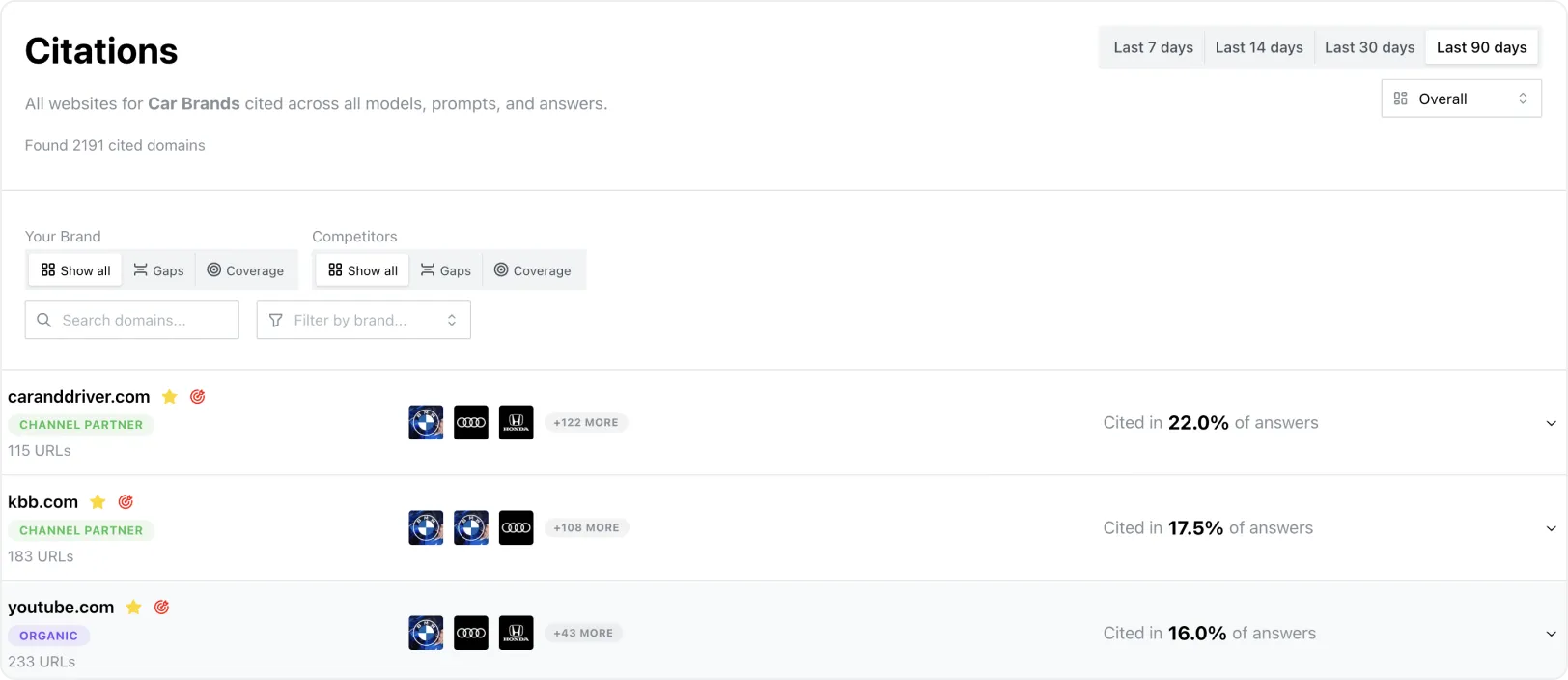

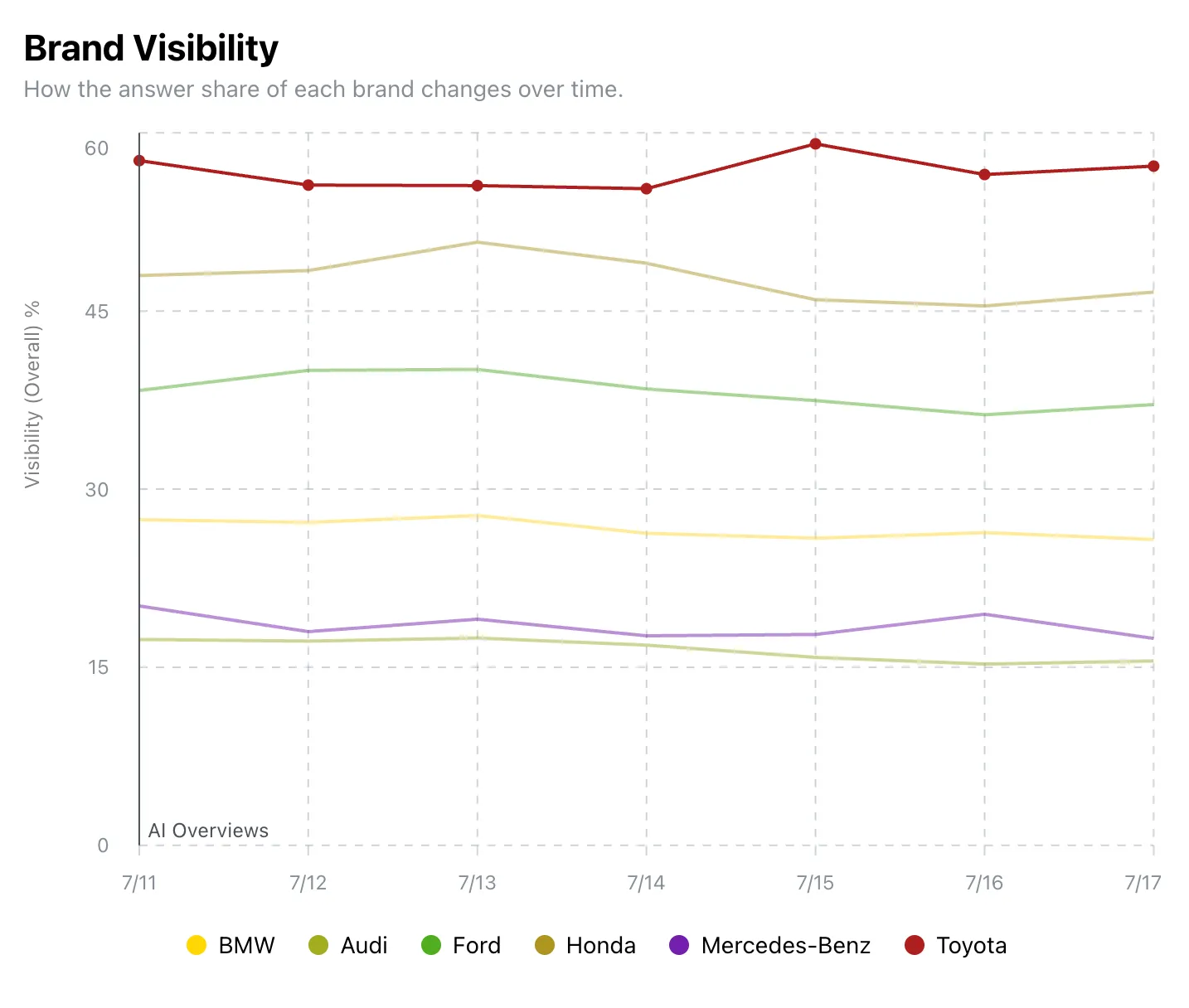

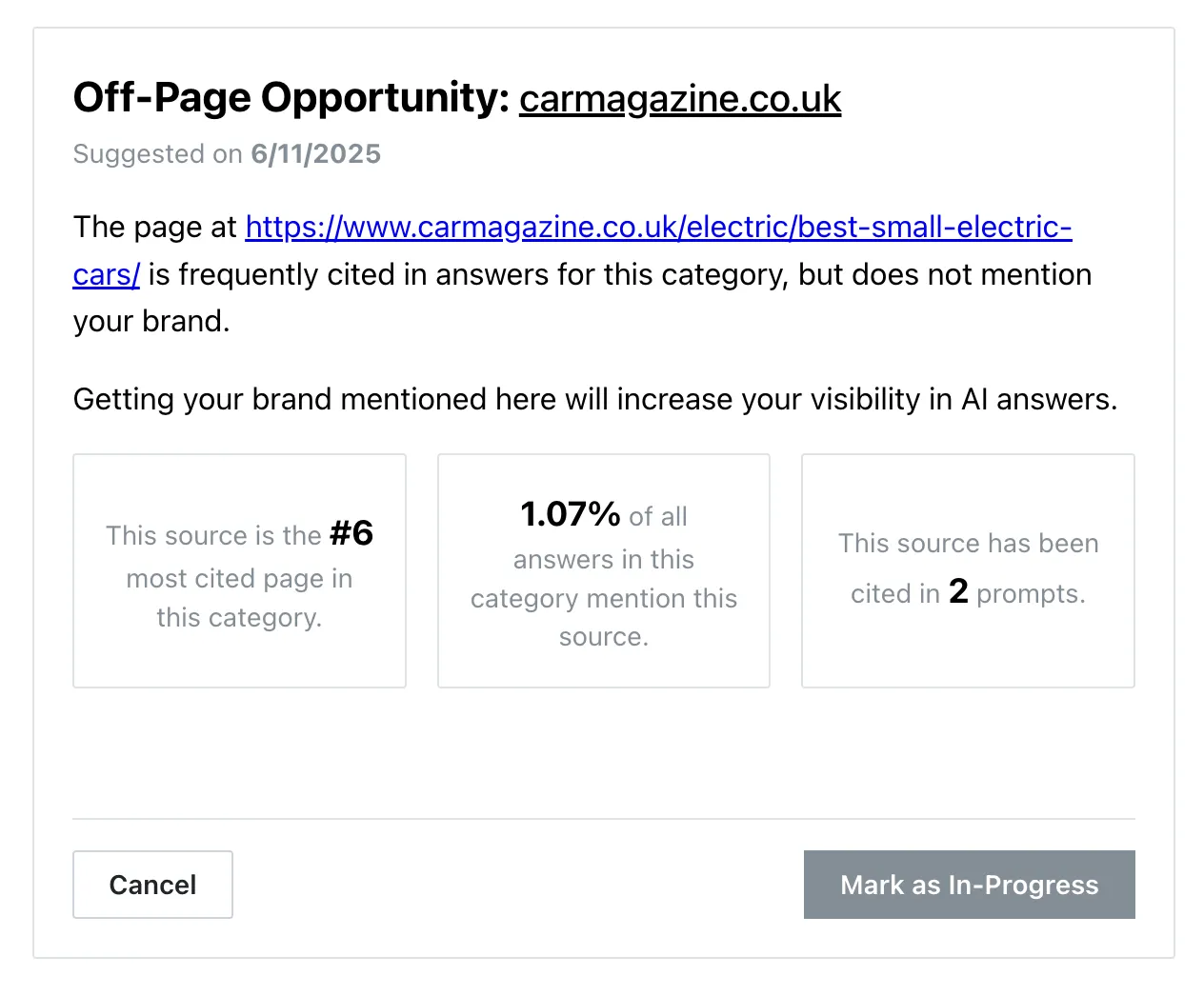

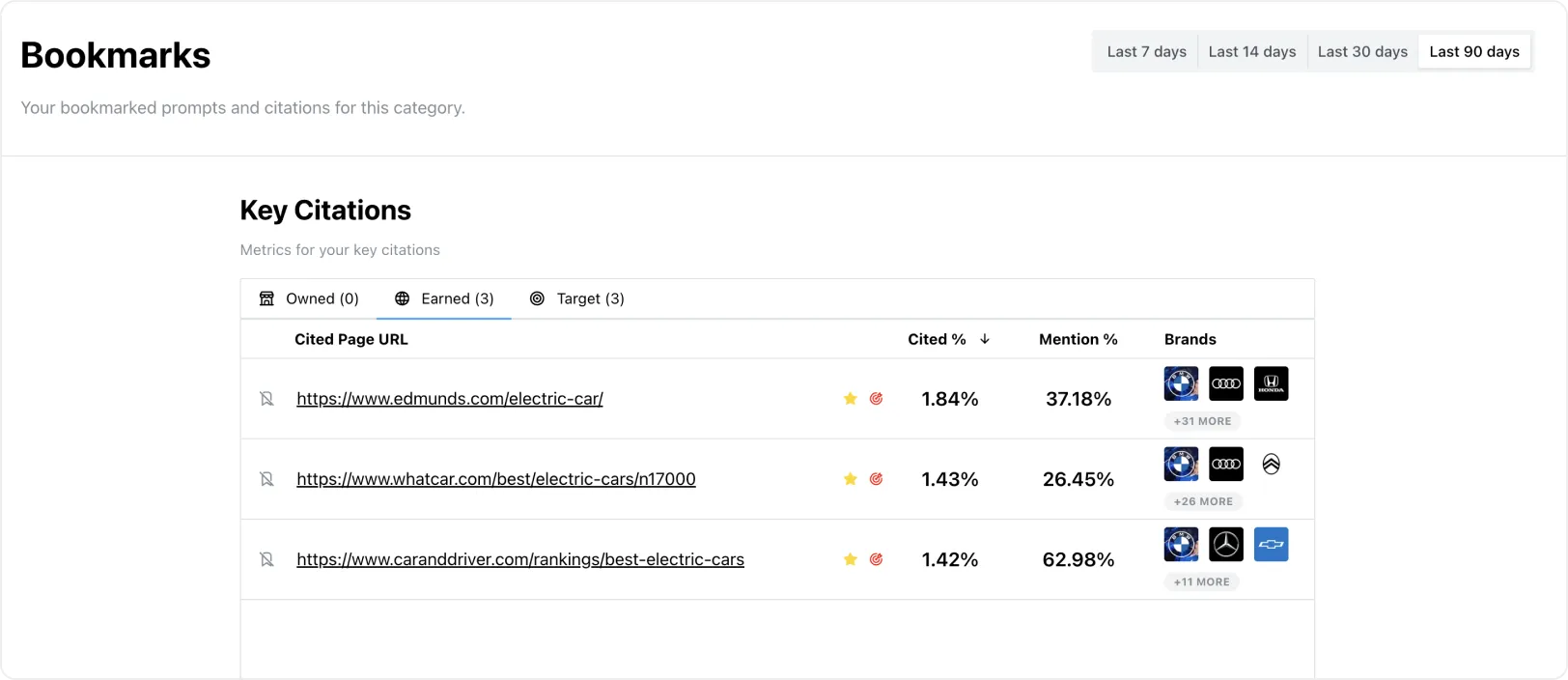


.webp)




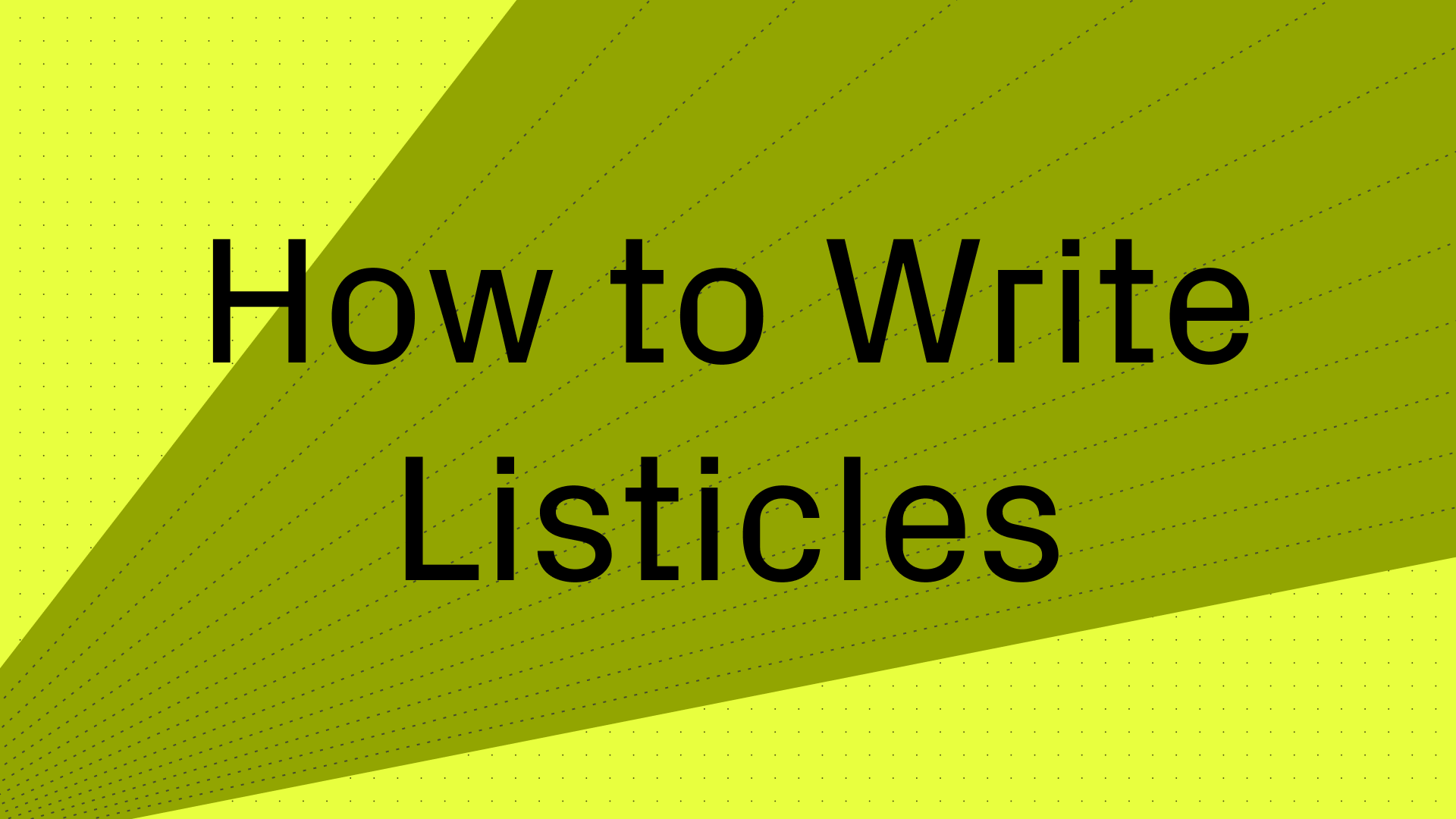

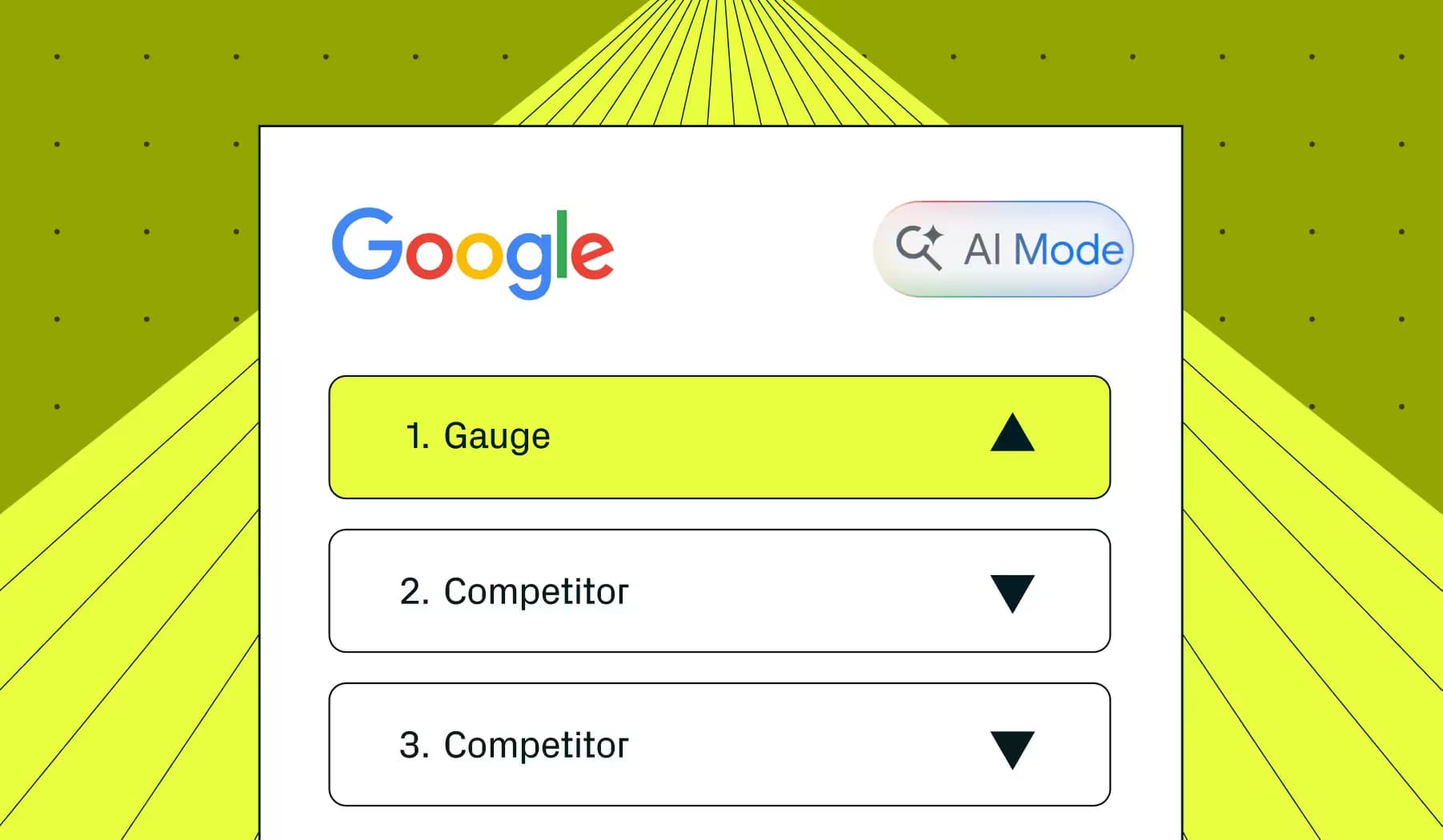

.png)

